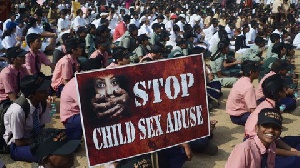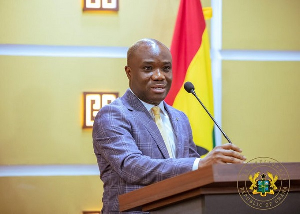Traditional authorities have been rallied to join forces and support efforts at reducing child abuse and all forms of sexual exploitation, particularly against the girl-child.
This is the path to travel to enable girls pursue meaningful education and also acquire employable skills to make their lives better in future.
Mr Martin Opoku Sekyere, Field worker for Defence for Children International (DCFI), who made the call said some traditional practices and beliefs which, resulted into early marriages and sexual abuse among girls, must reconsidered.
This was at a day’s workshop held in Kumasi to deliberate on laws that would help protect the girl-child.
It was attended by the key stakeholders - Civil Society Organisations (CSOs), traditional rulers, child protection agencies and leaders of faith-based organisations.
The DFCI, Ghana Coalition, a CSO focussed on child protection and rights are partnering Plan Ghana, also a COS, to work with key stakeholders to reduce child marriages and sexual violence/abuse, reduce commercial sex exploitation.
These are geared towards finding decent employment opportunities as well as vocational skills training to help reduce child abuse by the year 2020.
Mr. Sekyere cited Child marriages, sexual abuse and violence, rape and defilement, as being on the rise in the country, especially in the northern, Upper East, Upper West, and the Ashanti regions saying the worrying trend needed to change.
“Children between the ages of 9 and 12 are mostly abused and the root cause are due to early marriages and certain traditional practices, beliefs of some religions,” he added.
He said it was time laws protecting children which included; the Domestic Violence Act 2007, the National Gender Policy, the Justice for Children Policy and the Human Policy Act, were strictly enforced to stem the rising trend.
Mrs. Esther Apraku Nyarko, Municipal Director, Department of Social Welfare and Community Development, at Asokore-Mampong, took participants through by-laws formulation for the protection of the girl child.
She urged key Stakeholders to identify, describe and analyse the problem, develop access to by-law options and earmark what she described as municipal decision makers.
They are also to build support for the by-law, draft it, facilitate adoption and implementation, while also monitoring and evaluating the by-laws.
Rev. Stephen Darfar, Ashanti Regional Director for the Department of Children, also outlined the effect of Gender-based violence and child marriages on the girl-child, including; social, economic isolation and suicidal thoughts.
He urged the public to help reduce child abuse by reporting any suspected case of abuse to any CSO or the police for the child involved to be rescued.
Regional News of Saturday, 3 November 2018
Source: ghananewsagency.org

















